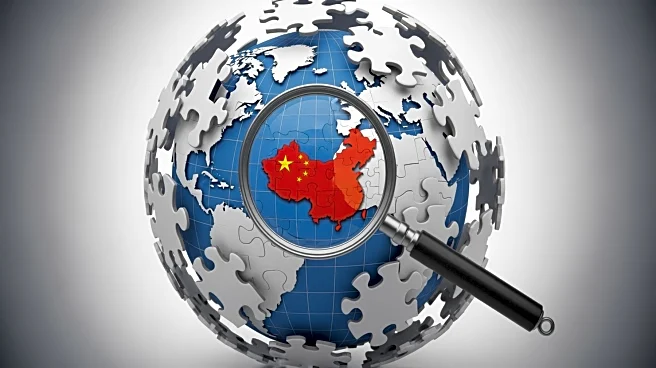What's Happening?
China has been increasingly involved in United Nations peacekeeping operations, contributing more personnel than any other permanent member of the UN Security Council. Since Xi Jinping's rise to power,
China has expanded its role, not only in terms of troop contributions but also by influencing norms and concepts within the UN. Chinese scholars have been vocal about the need for UN reform, advocating for changes that reflect the interests of developing countries. China's involvement in peacekeeping is part of a broader strategy to assert its influence in global governance, aligning with initiatives like the Belt and Road.
Why It's Important?
China's growing role in UN peacekeeping and its push for reform have significant implications for international relations. By contributing substantial resources and personnel, China is positioning itself as a key player in global peace and security. This involvement allows China to promote its own concepts, such as prioritizing development over intervention, which could reshape the UN's approach to conflict resolution. The emphasis on sovereignty and non-interference aligns with China's broader foreign policy goals, potentially challenging Western-led initiatives that focus on human rights and democratic governance.
What's Next?
China's continued expansion in UN peacekeeping and governance reform may lead to increased tensions with Western countries, particularly the United States. As China seeks to influence the UN's agenda, other nations may respond by strengthening their own contributions and forming alliances to counterbalance China's growing clout. The upcoming elections for leadership positions within the UN will be crucial in determining the future direction of these organizations. Additionally, China's focus on development as a means of promoting peace may lead to new partnerships with countries seeking economic growth.
Beyond the Headlines
China's strategy in the UN reflects a broader shift in global power dynamics, where emerging economies are challenging traditional Western dominance. This evolution raises questions about the future of multilateralism and the role of international organizations in addressing global challenges. The emphasis on development and economic cooperation over human rights may lead to a redefinition of global priorities, impacting issues like climate change, cybersecurity, and poverty reduction. As China continues to assert its influence, the UN may need to adapt to a new era of geopolitical competition.










